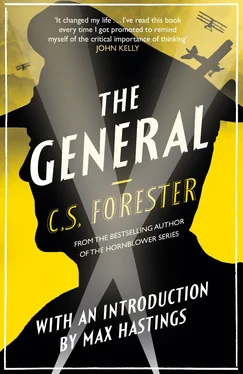The contrast is explained, if not justified, in part by the fact that it proved necessary to fight and overcome German expansionism a second time in the course of the twentieth century. This caused many people to conclude that the earlier struggle had been a failure, the achievement of victory in 1918 annulled by subsequent events. In some measure, this was true. But a balanced perspective, such as should be attainable a century after the event, suggests that if the Kaiser’s Germany had won the First World War, Europe would have paid a terrible forfeit. It is much too simplistic to look back on the 1939–45 conflict as Britain’s ‘good’ war, and 1914–18 as its ‘bad’ one. The war poets are so often misinterpreted by modern readers, that it is necessary to remind ourselves that Wilfred Owen – to name only the foremost – went to his grave in November 1918 overwhelmed by the horror of his generation’s experience, but unwavering in his conviction that the allied cause was just, and had to be upheld in arms, a view in which some of us remain assured that Owen was right.
A twenty-first-century reader who takes up The General will discover no cause to love Curzon’s kind. But C.S. Forester recognised that his fumbling half-hero was as much a tragic figure as the men whom he led, often to their deaths. The author ends his tale as he began it, with a drollery: ‘And now Lieutenant-General Sir Herbert Curzon and his wife, Lady Emily, are frequently to be seen on the promenade at Bournemouth, he in his bathchair with a plaid rug, she in tweeds striding behind. He smiles his old-maidish smile and his friends are pleased with that distinction, although he plays such bad bridge and is a little inclined to irascibility when the east wind blows.’ A modern reader who wishes to understand something about the nature of the men who directed Britain’s Great War will learn more from the pages of Forester than from those of many modern pundits and novelists, marching doggedly through the centenary of 1914 bearing knapsacks still laden with myths and clichés.
Max Hastings
January 2014
Конец ознакомительного фрагмента.
Текст предоставлен ООО «ЛитРес».
Прочитайте эту книгу целиком, купив полную легальную версию на ЛитРес.
Безопасно оплатить книгу можно банковской картой Visa, MasterCard, Maestro, со счета мобильного телефона, с платежного терминала, в салоне МТС или Связной, через PayPal, WebMoney, Яндекс.Деньги, QIWI Кошелек, бонусными картами или другим удобным Вам способом.












